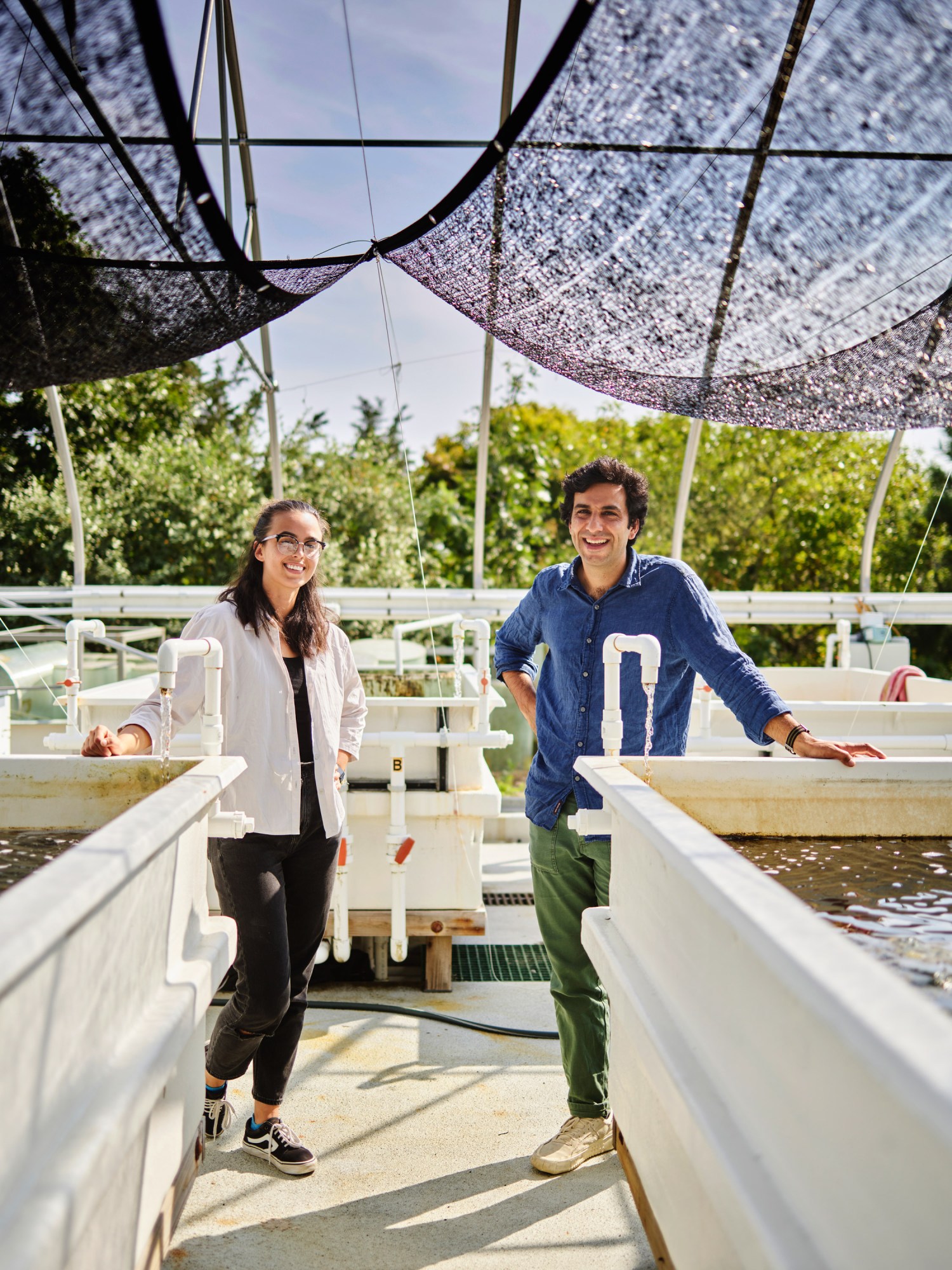Dean hopes to be involved in answering that question soon. At press time, WHOI was seeking EPA approval to undertake the first open-ocean test of OAE in the summer of 2024. The LOC-NESS project (short for “Locking away Ocean Carbon in the North East Shelf and Slope”) calls for WHOI biologists, chemists, engineers, physicists, and geologists to release alkaline materials into federal waters south of Martha’s Vineyard alongside a harmless dye so they can track where it goes using satellite imaging. Then, on board a WHOI research vessel, they will simultaneously take measurements to quantify how much carbon dioxide can be pulled in through OAE and study the impact on the ocean. On shore, the team is using ocean models to guide the experiments and interpret the forthcoming results. Subhas is spearheading the project. Dean’s role will be to study OAE’s effect on phytoplankton communities, monitoring how the populations change and observing how it affects the crucial role these plankton play in the carbon cycle. “You can only learn so much from a lab study,” she says. “At some point you have to go out.”
Dean hopes that her research both in the lab and at sea will help guide OAE implementation and keep the ocean safe. It’s important that we better understand OAE’s impact on marine life, she says, before we scale up and “just start dumping alkalinity out there.”
An opportunity to educate
Dean has always been a passionate environmentalist. Growing up in Central Oregon with a love of the forest, she looked up to forest rangers as heroes and petitioned her mother’s landlord to implement a recycling system in their building. But her family did not always share her enthusiasm.
She remembers coming home from college, excited to tell them about the environmental science she’d learned, only to be met with indifference. When visiting relatives in Alabama, she told a family member about her major and the response was “Why don’t you study something that actually matters?”
Coming from a family that didn’t believe in climate change until recently, Dean found ways to talk about science without pushing skeptics’ buttons. She says she learned how to avoid being “too pushy,” and how to separate the science of climate change from the politics. Her passion for sharing her excitement about science led her to begin volunteering with the nonprofit Zephyr Education Foundation in Woods Hole shortly after she started at WHOI.

CHRISTOPHER CHURCHILL
Zephyr takes middle school, high school, and college students on ocean “cruises” with Woods Hole researchers so they can watch marine science happen. The founder, Rob Reynolds, has been running the program for 14 years; his students explore the salt marsh around Woods Hole, take water quality measurements, and even use a dredge to collect and examine seafloor creatures.
Dean has become a regular on Reynolds’s cruises, and she enjoys the chance to introduce these students, many of whom are from low-income backgrounds, to marine science. “A lot of [these] people have never even been on a boat,” she says. Some “have never even seen the ocean.” As a first-generation college student from a working-class background, Dean says, she feels a connection to them.
And she sees such outreach programs as critical. “All this really cool science happens, but it really just stays in the ivory tower,” she says. “Scientists [need] to have these broader communication skills, where they can take their science outside of academia.” Introducing marine science to young people seems like a good way to do just that.
